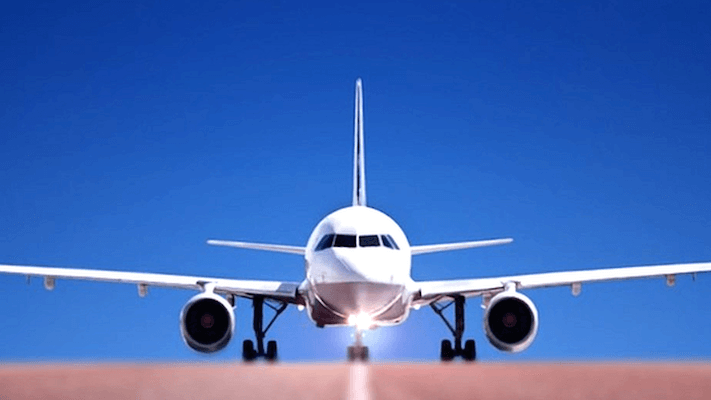…As airlines raise fares, passengers reschedule flights
The Israel-Iran tensions have forced Nigerian travellers to cancel, reschedule and rethink their summer plans due to high cost of airfares and fear of attacks.
BusinessDay found that some airlines now do multiple stopovers for trips that were hitherto direct. A passenger who travelled to South Africa from Nigeria last week told BusinessDay that his flight did six stopovers during the return trip.
He and other passengers were lodged in hotels during the stopovers, with the airline bearing the extra costs.
As a result, airlines have raised their prices to cover miscellaneous costs incurred during the trips.
An economy class return ticket from Lagos to London, which cost between N1.2 million to N2 million before the Israel-Iran tensions, now go from N2 million to N5 million.
Tickets that cost N1.2 million before the conflict are now sold at N1.7 million at the minimum.
Before, Lagos-Dubai’s economy class ticket was priced between N1.5 million and N2.2 million, but it now costs from N1.5 million to N4.5 million.
Similarly, a Lagos-New York ticket, which was priced between N1.4 million and N2.5 million, now costs up to N3.8 million. The business class goes between N6 million and N17.5 million.
Read also: Oil prices plunge to $69 as Israel, Iran agree to ceasefire
Middle-East flights hit
Middle East airlines, which operate about 30 percent of summer flights from Nigeria through direct and connecting flights, are badly hit as passengers continue to cancel and reschedule flight plans since Qatar announced closure of airspace, which was later re-opened.
Travel agents and airlines are also among the worst hit as travellers shun travel plans and reschedule for later days over fear of attacks.
“This is about the time summer sales are supposed to be picking up for us, but that is not the case this period. People are very sceptical now because they think it is still dangerous to travel. Missiles are flying up and down and people are simply just taking precautions,” Bankole Bernard, group managing director, Finchglow Holdings, a travel and tour group of companies, told BusinessDay.
Bankole noted that while airfares have gone high, travellers are not really bothered about them but are concerned about safety.
Pilgrimage to Israel shattered
Prospective pilgrims have put their plans on hold as thousands who managed to travel are still stranded in Israel and unable to leave.
“The Christian pilgrimage is most affected now because they cannot go to Israel for now. The conflict has cancelled any pilgrimage travel to Israel this year,” Olumide Ohunayo, industry analyst and director of research, Zenith Travels, told BusinessDay.
Read also: Israel-Iran turmoil to rattle Nigeria’s fragile trade routes
Ohunayo said the aftermath of the conflicts would include disruptions in travels and slight delays for security checks at airports due to heightened tensions.
“The airlines will have to rebook for flights that were cancelled and diverted. Passengers and airlines will pay extra costs for accommodation. There would be discomfort for passenger travels because as airlines reschedule, there would be cascading effects on subsequent flights.
“For those making fresh travels now, they would see an increase in fares due to fuel price and security costs. These will be embedded in the fares and not shouldered by the airlines alone again. For those whose travels are not too important, they may have to reschedule,” he explained.
Low travel season
Two months ago, BusinessDay had reported that the low travel season had forced airlines operating from Nigeria to Europe to slash fares and offer promo fares to various countries, with airlines selling promo tickets.
But the reverse has become the case now as summer ticket rates have increased as a result of heightened security across various airports and plans to reroute flights when the situation arises.
Seyi Adewale, chief executive officer, Mainstream Cargo Limited, told BusinessDay that the potential war, with missiles flying in different directions within the Middle East region, creates great frustration for travellers in terms of business, leisure, and family-based engagements.
“We remember the erroneous downing of passenger aircraft in recent times such as seen in Iran and Azerbaijan. It is reasonable for travellers to cancel or postpone their due travels, including summer travel needs as it relates to the Middle East, and we should anticipate the cancellation of seminars, conferences, workshops and related activities this period to ‘err on the side of safety,’” Adewale said.
He said for Nigerian travellers, the cheaper flight options for this summer might be jeopardised due to uncertainties for the highly leveraged and efficient Middle-East carriers that have over time gained the trust of Nigerian travellers.
Susan Akporaiye, managing director and CEO of Topaz Travels and Tours, said since the crisis escalated, her clients have been reaching out to her but she has assured them that things are still looking good except countries decide again to close their airspace.
“Summer flights on Qatar Airways were almost fully booked before the crisis started because Qatar did not restrict visas for Nigerians,” the former president of the National Association of Nigeria Travel Agencies (NANTA) said, noting that Nigerians just replaced the United Arab Emirates (UAE) with Qatar.
“People are still sceptical but I assured them it is fine. The issue is not in Qatar and the UAE, but passengers are just taking precautions, especially those that have changed their vacation plans this summer,” Akporaiye said.

